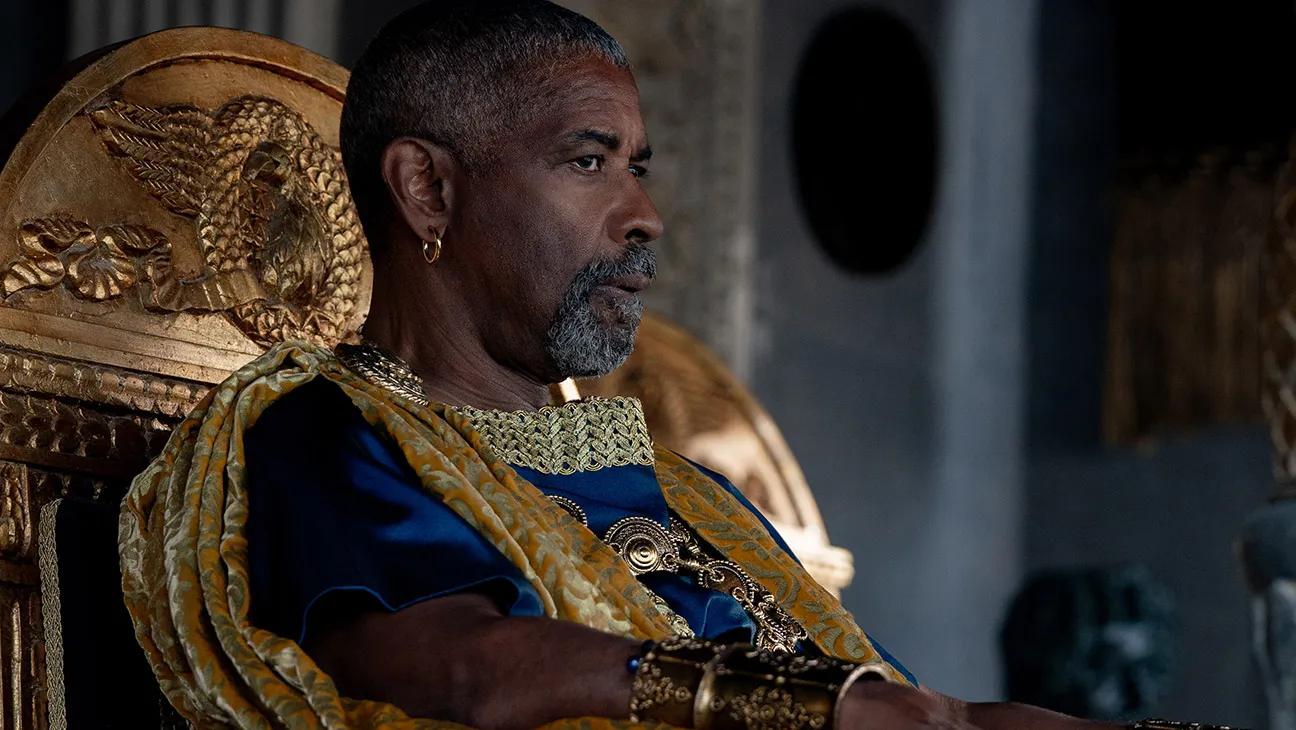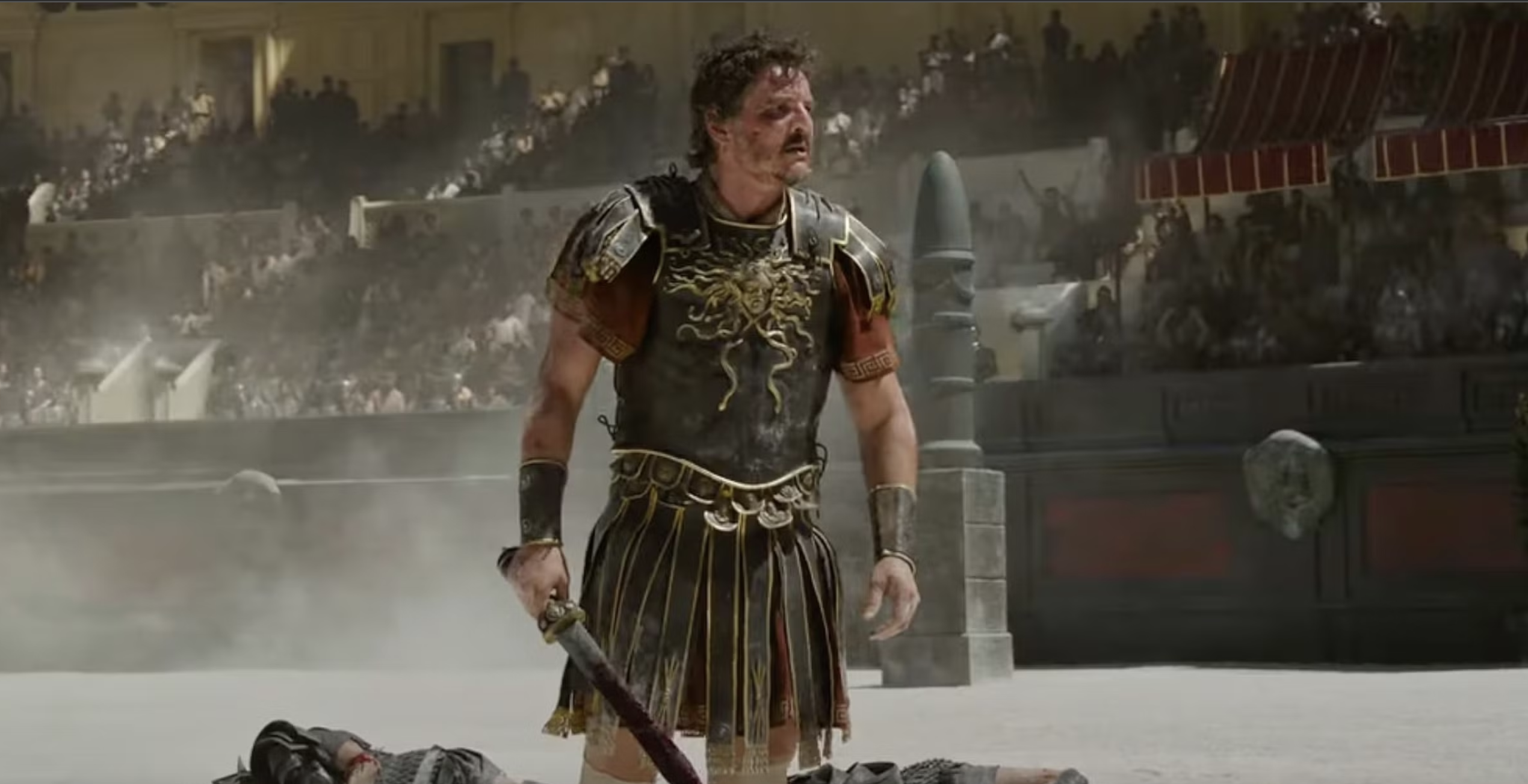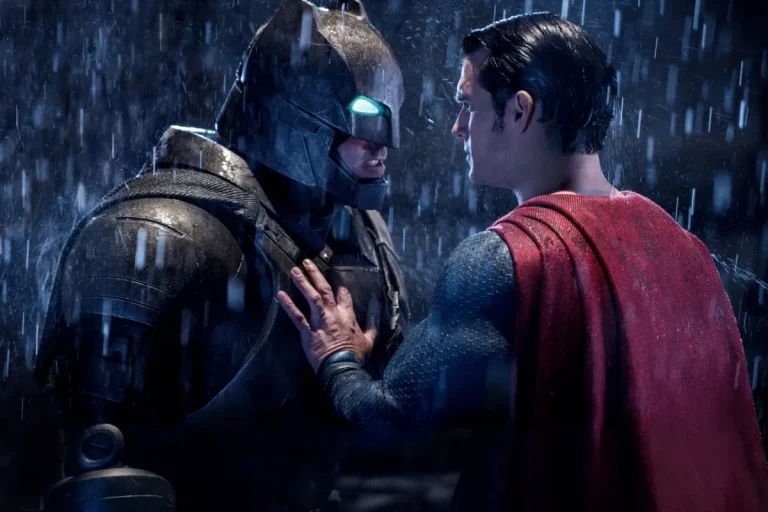“Gladiator” ends where it begins, with the hands of its protagonist brushing gently along with the breeze through fields of wheat; “Gladiator II” opens with the hands of its own protagonist sunk into a bowl of harvested grain. It’s this sort of circular thematic tying between generations that immediately advertises something of a genuine interest on the part of Ridley Scott to revisit one of his most beloved classics—for the first time, tackling the immediate follow-up himself rather than passing the reins off to some Canadian or other.
Those understandably confused as to why Scott, facing an endless slate of upcoming projects—certainly more than any other octogenarian in his field, at least—would choose a sequel to “Gladiator” (given the film’s particularly definitive finale) as one of them need only look to those opening moments to understand what attracts him to this universe; single stories may end, but rage carries through generations much the same as the power to run an empire, or run one into the ground.
Such is the reality facing Lucius Verus (Paul Mescal, sporting an eternal fury behind those massive raccoon rings under his eyes), the one-time heir to the Roman Empire now living in a distant North African village. (The film treats the revelation of his identity like a massive surprise, but every piece of marketing seems to indicate that you’re supposed to know this beforehand; Mescal isn’t even credited under his character’s other pseudonym.) Having lost the battle to keep his longtime home free from the clutches of the expanding regime, and being forced into bondage as a result, Lucius’s rage is fed all the more by the loss of his wife at the hands of the Roman general Acacius (Pedro Pascal) who led the campaign.

His determination to see Acacius’s neck met by his blade catches the attention of the ambitious former slave Macrinus (Denzel Washington, expectedly stealing every scene he’s in), who purchases him to be a gladiator in his greater scheme to overtake the current twin emperors (Joseph Quinn and Fred Heschinger). To Macrinus, Lucius is, in the former’s words, an instrument, but the young fireball is determined to set his own path, forged in the blazing fires of seething hatred.
Just as sword and shield collide in the arena, so too do the many motivations that make up the bulk of this film’s runtime; from Lucius to Macrinus to Acacius, “Gladiator II” finds no shortage of differing perspectives to bring a more tangible sense of cunning to the sword-and-sandals sub-genre that was less prevalent in Scott’s pre-“Game of Thrones” predecessor film. Across the same bulky length as that earlier entry (right around two-and-a-half hours), one would think that incoming screenwriter David Scarpa (Scott’s new favorite collaborator; scribe of the compelling “All the Money in the World” and the far less compelling “Napoleon”) might have his work cut out for him—after all, it took three screenwriters to lay out the story of Maximus Decimus Meridius, a task that, if we remove the nostalgia goggles, may not have been as monumental as we all remember it being 24 years ago.
By the grace of the gods, Scarpa distills the epic scope of Scott’s ever-massive eye—the glory of Rome is reborn with a CG sheen that nevertheless communicates the grandeur of the filmmaker’s architectural scale—into a trio of storylines that weave together quite nicely, particularly when those motivations find themselves in both competition and alignment. Where the characters that populated the original film were, in all honesty, painted in extremely broad strokes (particularly with regards to Russell Crowe’s Maximus and his interpersonal dynamics with those closest to him), Scarpa’s script finds whatever nuance it can in his most malleable new characters (Pascal’s Acacius), leaving the blanks to be filled by the performances when nuance is to be thrown to the lions.

It’s in this respect that Washington proves the key to “Gladiator II” being in any way a successful endeavor—one which, frankly, is on par, if not slightly better, than its ancestor. Continuing his recent streak of favoring a dollop of silliness in his historical epics, Scott gives Washington the room to revel in the excess that Roman high society has to offer its most duplicitous success stories. The legendary actor, a geyser of ceaseless charisma, projects the ideal level of authority and charm for someone in his character’s precarious position, never letting the frivolity overshadow the stealthy mind in a constant game of chess behind that killer smirk and those ten — count ‘em, TEN — flashy rings.
So compelling is Denzel, in fact, that Scott runs the very real risk of letting him completely usurp the entire film just as Macrinus plans to do so against the pair of ginger man-babies running the onscreen enterprise. Mescal—you know, the Gladiator of “Gladiator II”—makes promising use of his leaner bulk to truly sell the one-track mind that drives his quest for revenge, but sometimes, the veterans really can’t help but take the younger talents to school.
Put another way, what Mescal can do with his biceps is nothing compared to what Denzel can accomplish with a simple twiddle of his bedazzled fingers. It’s in this area that the film’s stretched-out narrative tends to serve its overall purposes better—in avoiding this complete, Zel-shaped solar eclipse—than Scott’s first “Gladiator,” itself a victim of too little of its lofty time dedicated to quantifying the sweeping emotional weight it insisted on having.
Amidst the clang of weapons and brutality of the bruising knuckles that populate its spectatorial fight scenes—themselves shot with a greater sense of scope and clarity in the cutting room than those from two decades prior—“Gladiator II” finds its sturdiest crutch in reaffirming Ridley Scott’s capacity to lead the sort of palpably physical blockbuster filmmaking that seems to be going the way of the Roman Empire itself. As he continues to prove well into his eighties, all he needs is the right instrument (i.e., a competent script, near-identical in structure and narrative as it may be to that which came before) to ensure that those of us in the stands are, indeed, entertained.



![Offbeat Cops [2022]: ‘NYAFF’ Review: A beautiful unconventional film with intertwined threads](https://79468c92.delivery.rocketcdn.me/wp-content/uploads/2022/07/OFFBEAT-COPS-MOVIE-REVIEW-1-768x512.jpg)
![Clementine [2020] Review – An erotic thriller about concealed feelings and power struggles](https://79468c92.delivery.rocketcdn.me/wp-content/uploads/2020/05/Clementine-1-highonfilms-768x432.jpeg)



![The Passion of the Christ [2004]: Powerful. Provoking. Polarising.](https://79468c92.delivery.rocketcdn.me/wp-content/uploads/2018/06/the-passion-of-the-christ-768x433.jpg)